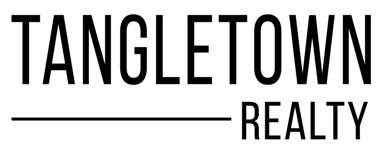The Buying Process
There’s a greeting card that states, “Surgeon General’s Warning: Home-buying can cause severe heart palpitations, anxiety, sleepless nights, shortness of breath, loss of appetite, stomach upsets, memory loss, fatigue and hallucinations.” (©Maggie Holman, 1989, www.MaggiesMailbox.com ) This is meant to be funny, but sometimes it feels truthful! Knowing the process can lighten the buyer’s anxiety.
1. Choose a Realtor®. Criteria to consider in choosing a Realtor® includes:
Representation: Do you know how an agent can represent you? If you understand the duties an agent owes his/her client, what level of service do you want: exclusive representation, single agency, dual agency, or facilitator services.
Experience: An experienced agent has learned in "the school of hard knocks" in addition to the formal classroom. S/he has learned how to creatively negotiate for your benefit. S/he can also explain common practices in the bargaining process. An agent's experience helps in reading the market to know if buyer's or seller's currently have the advantage in negotiating.
Education: Just like experience benefits the client, additional training keeps the agent abreast of new developments in the field.
References: What do past clients have to say about the agent's services?
Personality: Is the agent's personality intimidating or one you feel comfortable with?
The agent's network: Because many people are involved in your process of purchasing a house, it's good to know what people your Realtor® recommends, and why.
2. The State of Minnesota requires all real estate agents review the disclosure form “Agency Relationships in Real Estate Transactions” early in the relationship. The form must be reviewed PRIOR to signing a representation contract with a Realtor®. The form is for information only and does NOT legally bind you to the agent.
3. Choose a mortgage officer for 2 reasons: 1) A lender pre-qualification letter is needed when making an offer on a house. 2) The lender will determine your price range so you tour houses you can afford.
4. Sign a buyer representation contract with your Realtor®.
5. Discuss your house hunting criteria and mortgage terms (i.e., seller will pay closing costs, amount of down payment, kind of mortgage, possession date, etc.) with your Realtor®.
6. Review and choose houses (usually MLS listings) to tour.
7. Ask your Realtor® to schedule showings to see the houses.
8. Start shopping for your dream home!
9. Write the purchase agreement. Your Realtor® will review the forms with you before signing. You will need:
An earnest money check. Earnest money is usually 1% of the purchase price rounded to the closest $500.00 and will be cashed within 72 hours of acceptance of your offer.
The letter from your lender regarding your ability to get a mortgage.
10. Your Realtor® will electronically present your offer to the seller’s agent and keep you updated on the status of your offer.
11. If your offer is accepted and you wish a buyer’s inspection, the inspection must be scheduled within the time agreed in the purchase agreement. You may choose an inspector or ask for referrals from your agent.
12. After the inspection, you may negotiate for repairs to be made, accept the house as it is, or cancel your purchase agreement. Your Realtor® can give you guidance in this process and will negotiate for your written requests.
13. Copies of the accepted purchase agreement will be sent to your mortgage officer and the title company by your agent so they can begin processing your loan and the title work.
14. Relax, take a breath, and start packing.
15. Purchase your first year of homeowner's insurance coverage for your new home.
16. Call for utilities to be changed to your name on possession day.
17. The professionals on your team will do their work while you pack! Be aware that the mortgage company and title company may ask for additional information as needed, but silence from them usually means things are proceeding as planned.
18. Attend the closing as scheduled by the title company. You will need a picture ID, a cashier’s check made to yourself for closing costs if required, the amount on your mortgage officer’s good faith estimate, your homeowner's insurance binder and paid receipt, and usually your residence addresses for the last 10 years.
19. MOVE AND CELEBRATE!
20. TELL YOUR FRIENDS AND RELATIVES ABOUT THE EXCELLENT REPRESENTATION YOU GOT FROM YOUR REALTOR®.

